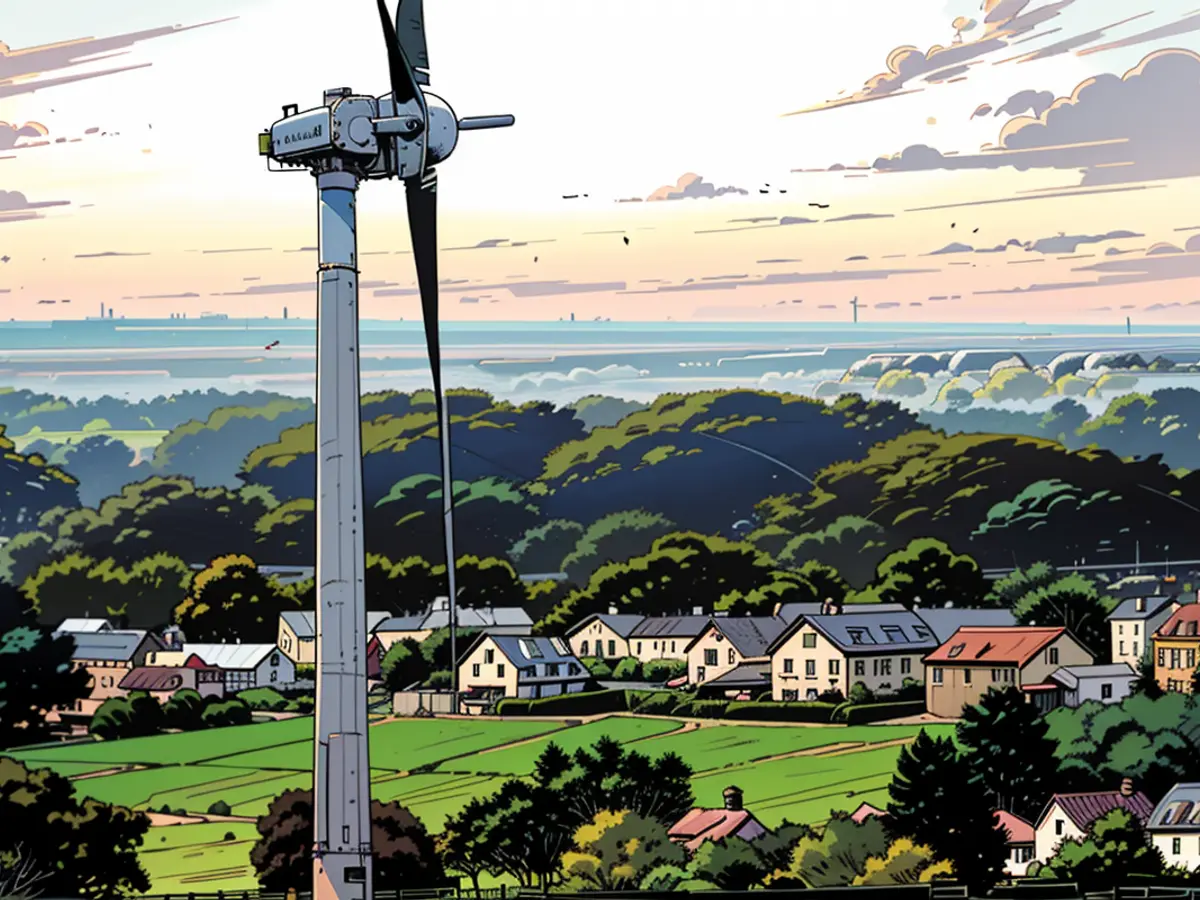energy transition - Communities and residents receive money for renewable energy
Approximately from the beginning of 2025, Bavarian municipalities and directly affected citizens are expected to receive money for each kilowatt-hour of electricity fed into the grid from new solar and wind power plants. The new regulation is planned to be enforced strictly at the beginning of the next year, according to Economic Minister Hubert Aiwanger (Free Voters) after the cabinet meeting in Munich. He is convinced that this will give renewable energy expansion in the state another push.
1000 new wind energy plants by 2030
According to Aiwanger, the municipalities are to be paid 0.2 cents per kilowatt-hour fed in, while affected citizens can count on 0.1 cents. Payments will only be made for new plants with a minimum power output of one megawatt, and they are to be distributed among all parties involved within a fixed radius of each plant.
The state government has set itself the goal of initiating 1,000 new wind energy plants in Bavaria by the year 2030 and increasing annual solar power generation to 40 Terawatt-hours. The key to achieving these expansion goals and ultimately climate neutrality in Bavaria by 2040 is to increase acceptance in the population regarding wind energy plants and photovoltaic free-field plants.
So far, there has been no participation opportunity for affected residents
The Federal Government, through the Renewable Energy Act, has created the basic possibility for municipalities to financially participate in the value creation of the plants. However, according to the State Chancellery, this participation is at the discretion of the plant operators. The participation opportunity for affected residents is not provided for in the Federal Regulation; instead, the new Bavarian Participation Law is expected to take effect - it is to be submitted to the Landtag this year.
New energy generation plants are not always welcomed with applause in Bavaria, according to Aiwanger. However, the expansion must still take place. The knot has been untied in the wind sector - there are already applications for hundreds of wind turbines.
- This new regulation, set to take effect in 2025, will provide financial incentives to Bavarian municipalities and affected citizens for each kilowatt-hour of renewable electricity fed into the grid from new solar and wind power plants, as announced by Economic Minister Hubert Aiwanger in a cabinet meeting in Munich.
- In his vision for Bavaria, Hubert Aiwanger, a member of the Free Voters party within the Bavarian cabinet, aims to establish 1,000 new wind energy plants by 2030, targeting an increase in annual solar power generation to 40 Terawatt-hours.
- The Photovoltaic system is one of the key components in this ambitious energy transition plan, as Hubert Aiwanger recognizes its potential in contributing to the state's goal of achieving climate neutrality in Bavaria by 2040.
- Despite some resistance from certain communities, the Bavarian government is working on expanding renewable energy infrastructure, with Munich serving as a hub for various energy transition initiatives, including the implementation of photovoltaic free-field plants.
- As part of the energy transition, the Bavarian government is also considering the implementation of a new law that would provide affected citizens with an opportunity to financially participate in the value creation of these new energy generation plants, in line with the vision of promoting renewable energy and fostering local support for these projects.








